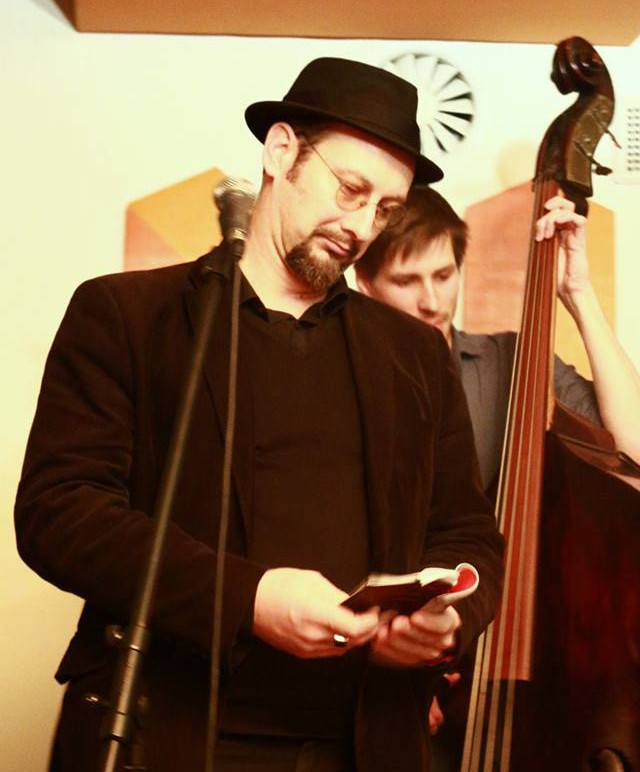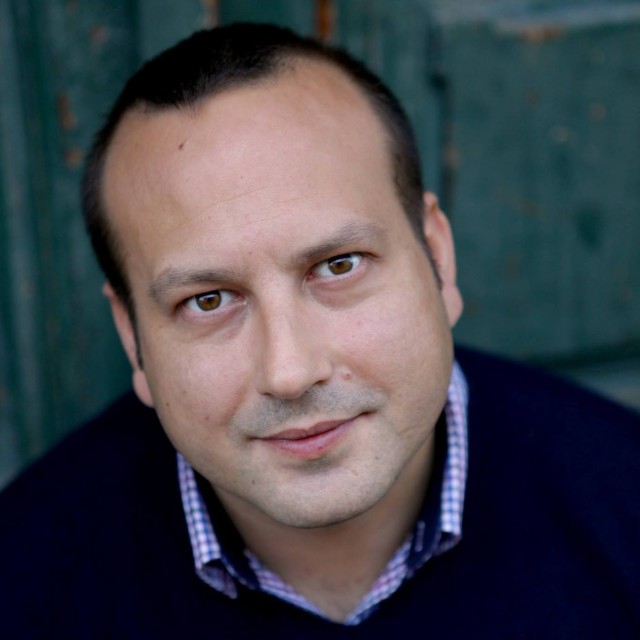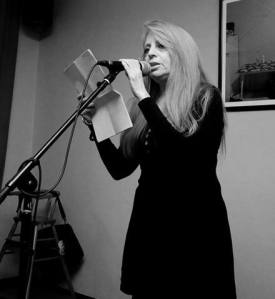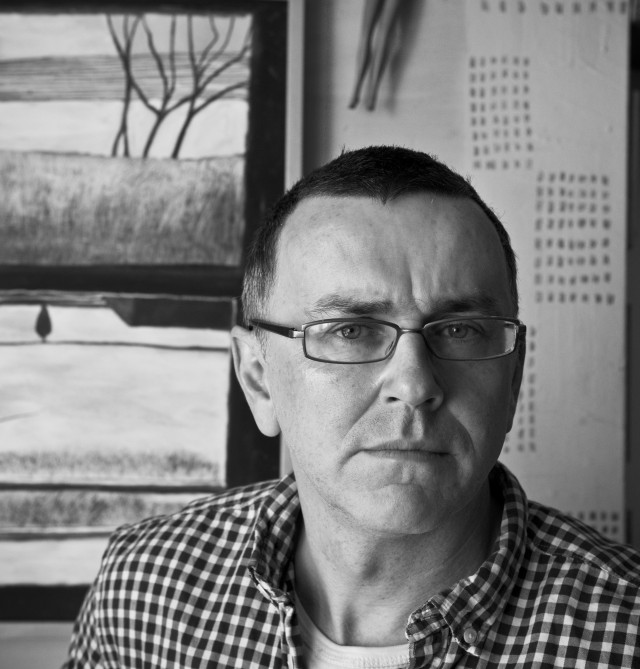A look at English-language literature in the Czech Republic in the last decade
The term “anglophone” in the title encompasses what used to be covered – in an incomplete or inaccurate way – by the term “English”. In other words, English literature can refer to literature by authors from England or to any literature written in English. In the former case, English literature is distinguished, for example, from Welsh, Scottish or Irish literature within the context of the United Kingdom. In the latter case, it is more accurate to speak of all writing in English anywhere in the world. Ultimately, anglophone literature is not just written by native speakers but also by authors for whom English is a second, third or simply another language.
This is not about a modern phenomenon (think of Nabokov or Conrad), but rather an unprecedented increase in it through intercultural communication, resulting in large part from digitalization and migration to developed English-speaking countries, and to a lesser (but for us relevant) extent from the community often collectively termed – rather inaccurately – expats, i.e. members of the global anglophone diaspora, many of whom wanted to see the countries of the former Soviet Union after the fall of the Iron Curtain, or in the case of America simply to get a taste of Europe.
Here business and literature have become unusually intertwined: thanks to the added value of “native speakers” with a foreign education and experience, many expats with literary talent are to be found working in the Prague headquarters of multinational companies as well as in private or state-run universities or self-employed in various capacities. They continue to empirically verify the unwillingness of Czech commercial publishers to bring out literature originally written in English in this country and yet have chosen to make their home in Prague (or Brno or Olomouc). It is worth noting that, by contrast, there is a much greater interest from print and online literary media in this country, so anglophone poetry and extracts from prose, essays and interviews with those involved in the scene are regularly published in Tvar, Psí víno, Czech Radio’s English broadcast, the magazine A2 and other media. Some of these authors successfully publish their poems or novels abroad and at the same time meet up in the evenings in the cafes and bars of Prague at one-off readings or literary festivals where they present extracts from their work, often perfunctorily translated into Czech. This sizeable community is characterized by its diversity and at the same time its interconnectedness. Although there are a number of completely different hubs for creative work, the vast majority of which now operate partly or fully online, the individual authors and regular players know each other, work together on multiple projects, or at least know of one another.
Ultimately, they are building on long decades of historical, cultural, political and literary links between the two languages. In this respect Prague is particularly attractive to incoming writers and artists. This has been charted over the long term by the independent publishing series Litteraria Pragensia Books, which has been operating at Charles University since 2002. In 2011 it brought out the anthology From a Terrace in Prague: A Prague Poetry Anthology (ed. Stephan Delbos), which quickly sold out. It spans a number of periods from the late 19th century to 2010. As we learn in the preface, it presents points of intersection between Prague and poetry, the ideal format to capture fleeting impressions of the city as well as a long-term relationship to the place.
Another venture of this type was an ambitious anthology of the Prague literary renaissance of the 1990s, The Return of Král Majáles (ed. Louis Armand, 2010), whose title comes from a well-known poem by Allen Ginsberg written as a quick impression of his brief visit to Czechoslovakia which ended in his arrest and deportation to Great Britain. In his anthology Louis Armand writes of a literary renaissance in Bohemia in the 1990s which rivals in intensity the energy generated by Ginsberg in the 1970s. However, the real stimulus here is the clash between various literary generations and cultural identities, with Lukáš Tomin at its forefront.
In 2017 Litteraria also published the book City Primeval: New York, Berlin, Prague (ed. Louis Armand, Robert Carrithers) which documents the underground from the 1970s to the present through the eyes of those who were and are a part of it. The personal testimonies and the emphasis on high-quality photo-documentation make this a valuable account of a unique time and an objet d’art in its own right.
In the Czech Republic, anglophone work is very closely linked with literature in translation, both in relation to publishing houses and to authors’ readings and other artistic/literary events. Given the specific status of English as a world language, it is perhaps inevitable that there is a large disparity between the interest in Czech literature translated into English and published abroad – in his recent lecture in the Václav Havel Library at the end of 2017, the translator Alex Zucker confirmed that interest in Czech literature in the United States is virtually nil; in contrast, the “world fiction” shelves of libraries and bookshops are flooded with translations of books written in English, more so than any other language. One positive outcome is that the books translated into English are high-quality works of Czech literature – the modest demand comes from literary rather than commercial circles. For example, Zucker has translated books by Patrik Ouředník, Petra Hůlová and Jáchym Topol.
One independent publishing house based in Prague is Twisted Spoon Press. Since 1992 it has been publishing English translations of works by authors from Central Europe, mostly from the Czech Republic, and also – to a lesser extent – original work in English; for example, by Lukáš Tomin, an author who wrote in English before his untimely death, or the well-known British punk Phil Shoenfelt. It specializes in famous names and titles as well as contemporary, experimental or underground work. Its chief editor Howard Sidenberg thus makes Czech literature accessible to the anglophone reader and in some cases brings out the very first translation of a title. One notable recent publication by Twisted Spoon was Nezval’s Surrealist/Poetic Absolutní hrobař (The Absolute Gravedigger) in a translation by Stephan Delbos and Tereza Novická which was awarded a grant from PEN America.
Aside from Twisted Spoon Press, the independent publishing house Equus Press has been operating half in the Czech Republic (Prague) and half in the UK (London) since 2011. It, by contrast, focuses very narrowly on what is known as new writing, i.e. contemporary or rather timeless work, especially innovative and experimental authors writing outside the Anglo-American literary establishment, which Equus views as a market like any other – a market whose demand for a certain type of literature, the kind that will sell, inevitably shapes and censors writing. At the same time, this is translocal or cosmopolitan work transcending the borders of national literatures. Equus published the very first English translation of Louis XXX by Georges Bataille as well as Second Through Brain by Melchior Vischer, a Dadaistic novel written in German which was translated into Czech by the chief editor of Equus Press, David Vichnar, in collaboration with Tim Konig. Equus also runs its website as an educational literary blog.
Louis Armand, whose go-to publisher is Equus, is a leading light of anglophone literature in this country. He settled in Prague in the early 1990s and since then has been behind many literary projects from magazines to events like the Prague Microfestival. He also teaches at Charles University’s Faculty of Arts, and as a literary and art theorist he has taken a long-term interest in the Prague literary avant-garde of the twentieth century: in addition to the anthologies mentioned above, he has published collections of essays and criticism on the subject.
Armand’s own work tends towards relentless experimentation of arbitrary length and subject matter, frequently referencing the avant-garde of various times and places. He has brought out many poetry collections and novels in the Czech Republic and abroad; a Czech translation of his award-winning neo-noir Breakfast at Midnight (2012) was also published by Argo. The book, named after the Surrealist collages of Libor Fára, is mostly set in a dark, rainy, moody Prague, providing a fresh take on its Libeň bank. Prague (or “Golem City”) is also the subject of Armand’s latest, eight-hundred-page novel filled with chess symbolism, The Combinations (Equus, 2016).
As well as the bricks-and-mortar publishing houses already mentioned, there are a number of interesting online projects and magazines that have replaced the earlier print media. The online magazine B O D Y has a broad scope: it simply publishes whatever catches the eye of the editorial board, whose members all live and work in Bohemia. Sections on performance, fiction and poetry are supplemented by specials with a particular focus: a selection of work by Czech, Hungarian or Irish authors, all in English translation/original. This is one of the most active platforms of its kind, relying for its appeal on the site’s clear layout and regular columns. B O D Y has had four Prague-based writers on the masthead: Christopher Crawford, Michael Stein, Stephan Delbos and Joshua Mensch, whose critically acclaimed memoir in verse BECAUSE was published last year by W.W. Norton.
A separate chapter is bricks-and-mortar bookshops in Prague offering foreign-language/anglophone literature in the era of Amazon and Book Depository. There used to be more of them: all that remains now is Shakespeare & Sons in the Lesser Quarter (its second branch on Krymská has turned into Café V lese; until recently the owners also had a branch in Český Krumlov) and the Globe Bookstore, in Holešovice twenty-five years ago, now in the New Town. Both of these bookshops also allow their premises to be used for various literature-related events, and the Globe has its own cafe.
At the moment, the annual Prague Microfestival (PMF) is probably the biggest anglophone literary event of its kind in the Czech Republic, though still quite intimate in scale. As its current programme director David Vichnar writes, it was created as a follow-up to its predecessor from 2004, the Prague International Poetry Festival; at the same time, it was and still is an alternative, non-commercial counterbalance to the better-known Prague Writers’ Festival. The PMF takes place every May, usually over three days, and each evening it features several authors from around the world. The festival is bilingual, with subtitles in a third language occasionally being added when a video installation is projected. After the readings, each evening is brought to a close by a different band. The festival also includes a book stall, lectures by guest artists, panel discussions, exhibitions and performances. Participants in past years have included the American lawyer, performer and poet Vanessa Place, member of the New York school of poetry Alice Notley, the British poet Maggie O’Sullivan, Thor Garcia, Mária Ferenčuhová and many more.
Another previous guest at the Microfestival was Laura Conway, one of the lowest-profile figures on the scene and yet an unforgettable one. She has lived in Prague for a long time but rarely makes public appearances, and her last project, which she “resurrected” at a one-day exhibition in 2013, was a unique collaboration with Kateřina Piňosová in which they combined drawings and text into a book entitled Abeceda stromů (The Alphabet of Trees, Concordia, 2002). Together with the artist and musician Ken Nash, Conway also established a travelling series of authors’ readings called the Alchemy Reading Series. Since then, the project has had a number of different hosts, including Anne Brechin and Sarah Borufka. An author’s reading takes place every month, and apart from the invited artists there is also an “open mic” for anyone who wants to present his work, be it poetry or music. In parallel, Alchemy has an active blog with information about all the participants as a way of promoting their work.
Someone else who has appeared at Microfestival several times over the years is the poet, prose writer and university lecturer Justin Quinn, who has lived in Prague since the mid-1990s and represents a more traditional literary stream. Both as an academic and as an author and translator, his main focus of interest is twentieth-century poetry. Over the years, he has translated the likes of Petr Borkovec, Ivan Blatný, Jan Zábrana and Bohuslav Reynek into English. An English anthology of Reynek’s art and poetry entitled The Well at Morning: Selected Poems and Graphic Artworks 1925 – 1971 was published by Karolinum in 2017 in Quinn’s translation.
His poetry collection Vlny a stromy (Waves and Trees) from 2006 was the only one to be brought out in a Czech translation, by Quinn’s friend Tomáš Fürstenzeller. It blends his Czech and Irish experience, the landscape and the city, mostly through the ubiquitous “organic movement in all the forms and constituent parts of life”, as the collection was described by the reviewer of the Czech translation, Alena Skálová.
Quinn’s first novel, Mount Merrion, was published in 2013 by Penguin Ireland. It is the history of several generations of the same family from a leafy suburb of Dublin where Quinn himself lived and grew up, and it also reflects developments in Ireland in the latter half of the twentieth century. This novel has also been brought out in Czech in a translation by Quinn’s wife, the painter and author Tereza Límanová, with the title Mezi Vilami (Among the Villas, Argo 2015).
Over the last decade, there has been a clear disparity in the number of male and female authors on the Prague anglophone scene. Similarly established female poets and artists, who lived in Prague in the 1990s and at the turn of the millennium, such as Donna Stonecipher (now living in Berlin) or Holly Tavel (now living in the USA), can no longer be presented as contemporary literature written in English in the Czech Republic. With open borders and extensive international collaboration, it is possible to speak of an optimistic and culturally inclined environment; yet it is no coincidence that the most interesting English-language books of recent years published in the Czech Republic have mainly been translations and anthologies of past work, while new literature tends to come from outside.
[ ]
Elizabet Kovačeva (1992) graduated in English studies with a specialization in critical and cultural theory at Charles University’s Faculty of Arts. As part of her studies, she spent time at Trinity College Dublin examining British literary modernism and contemporary theatre. Her Bachelor’s thesis “Narrative Structures in Virginia Woolf’s Shorter Fiction” earned her the departmental Vilém Mathesius Award. She has helped to organize several editions of the Prague Microfestival, for which she translated poems by Maggie O’Sullivan and Alice Notley. She translates from English, Czech and Bulgarian. She lives in Prague with her partner and daughter.




